December 12: A Day of Betrayal and Indifference. From the Holocaust to Modern Times
A Date Etched in Betrayal—The Unbroken Chain of Injustices Against the Jewish People
Some dates in history do not merely mark the passage of time—they bear witness to the tragedies of the past and the failures of humanity. December 12 is one such date for the Jewish people. It connects threads of suffering, betrayal, and a world that repeatedly chose indifference over justice.
From the rise of the Nazi regime to the Holocaust, from Israel’s pursuit of justice to the modern international community’s moral failures, December 12 tells a story of how the world has too always turned its back on the Jewish people.
1935: The Lebensborn Program
On December 12, 1935, when Heinrich Himmler founded the Lebensborn program in Munich. This was not just another Nazi project—it was a vision of racial engineering that sought to the non Aryan race. Lebensborn encouraged the birth of “racially pure” Aryan children and orchestrated the kidnapping of thousands of children deemed suitable for Germanization. The program focused on eugenics, screening applicants for racial purity and health. Lebensborn homes offered privacy and prenatal care to single mothers, while also supporting the kidnapping of children from occupied territories with perceived "Aryan" features. Despite its goals, the program fell short, with only about 7,000 children born in its homes, while many more foreign children were abducted and placed in German families.
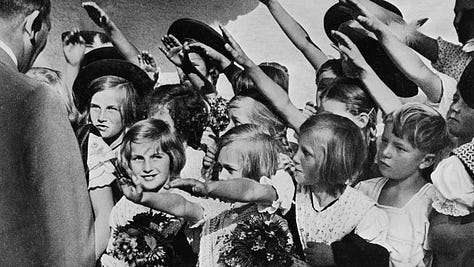
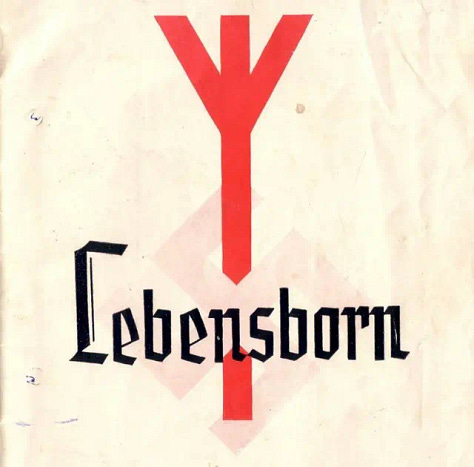
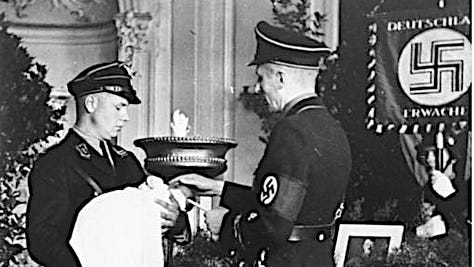
For the Jews of Europe, this was part of a larger machinery of dehumanization. Lebensborn aimed not only to build an Aryan utopia but to ensure that Jews and other “undesirables” had no place in the future. And yet, as this program took root, the world remained silent, unwilling to confront the growing threat of Nazi ideology.
1941: The Final Solution and Paris Raids
Six years later, on December 12, 1941, Adolf Hitler gathered Nazi leaders at the Reich Chancellery for what it is known as “Reich Chancellery meeting of 12 December 1941”. Because the meeting took place in private rooms rather than Hitler's office, no official record of it exists. However, entries in the diaries of Joseph Goebbels and Hans Frank confirm it.
Regarding the Jewish question, the Führer has decided to make a clean sweep. He prophesied to the Jews that, if they yet again brought about a world war, they would experience their own annihilation. That was not just a phrase. The world war is here, the annihilation of the Jews must be the necessary consequence - Joseph Goebbels, Diary entry December 12, 1941
The "Reich Chancellery meeting of 12 December 1941" is less well-known than the later Wannsee Conference. While the Wannsee Conference, held a month later, formalized the policies and logistics of the Final Solution, December 12, 1941, can be seen as an earlier point when the decision for total annihilation was cemented in Hitler’s mind.
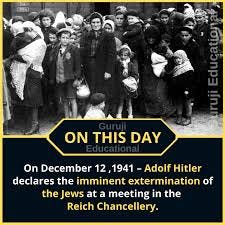
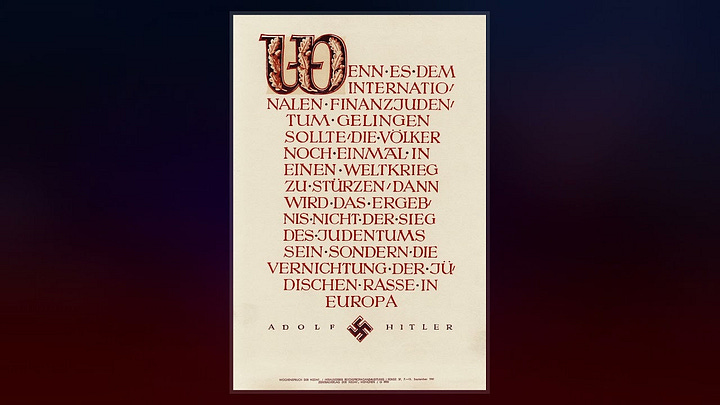
This meeting occurred just two weeks after Hitler’s meeting with Haj Amin al-Husseini, the Grand Mufti of Jerusalem, on November 28, 1941. Al-Hussein, expressed support for Nazi Germany’s war efforts in exchange for backing against Jewish immigration to British Mandate for Palestine. The meeting with al-Husseini further reinforced the Nazis’ commitment to eradicating Jews, not just in Europe but also in the Middle East. The ideological alignment between Nazi Germany and some Arab nationalist figures highlighted the expanding scope of Nazi anti-Semitic ideology beyond Europe, setting the stage for the broader, more systematic genocide that would unfold and shapes the Middle East until today.
The indifference of December 12, 1941, is a stain that lingers on the conscience of nations. On that same day, in Nazi-occupied Paris, German soldiers stormed homes in search of Jews. Families were ripped from their lives, dragged into the streets, and sent to their deaths. The desperation, the fear, the cries for help—none of it moved the world to act. Refugees who had fled Europe were turned away from safe havens. Leaders knew about the atrocities but chose inaction.
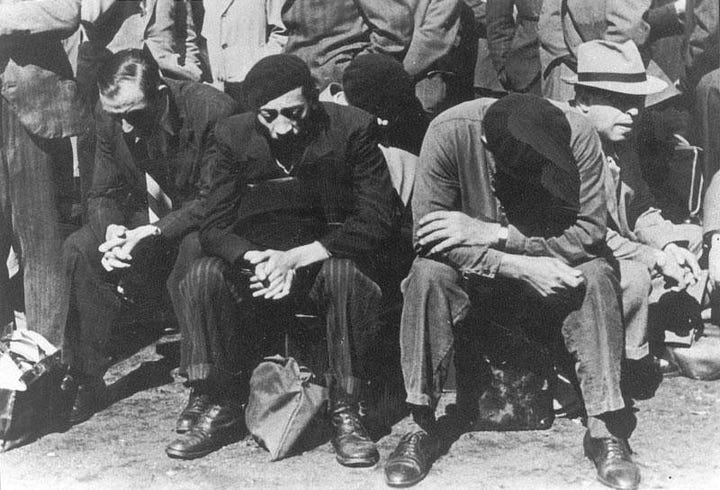
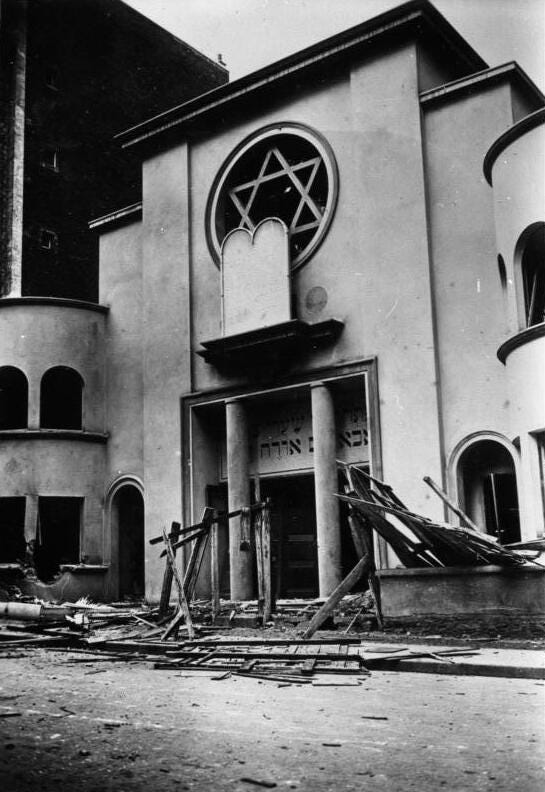
1942: Raczyński’s Plea for Justice
Nearly a year later, on December 10, 1942, Edward Raczyński, the Polish government-in-exile’s ambassador in London, delivered a harrowing message to the Allied governments. Known as Raczyński’s Note, this document detailed the horrors of the Holocaust—the systematic extermination of Jews by Nazi Germany, the mass shootings, the death camps, and the dire urgency of the situation. Raczyński's report was one of the earliest, most comprehensive accounts of the Holocaust made available to the Allies.
But his plea fell on deaf ears. The Allied powers—Britain, the United States, and others—acknowledged the atrocities but did little to act. There were no coordinated rescue efforts, no military operations to disrupt the killing machines at Auschwitz or Treblinka. Instead, bureaucratic inertia and political calculations took precedence over saving lives. The Allies’ failure to act in response to Raczyński’s Note was yet another chapter in the long history of indifference to Jewish suffering.
1961: Justice Condemned
Two decades later, also on December 12 became a day of reckoning—or so it should have been. In 1961, Israel convicted Adolf Eichmann, one of the architects of the Final Solution, for his crimes against humanity. For the Jewish people, Eichmann’s trial in Jerusalem was not just about one man—it was a demand for justice, a reminder to the world of what happens when evil goes unchecked. The highly publicized Eichmann trial resulted in his conviction in Jerusalem, following which he was executed by hanging in June 1, 1962
But the world responded with scorn. The United Nations passed a resolution condemning Israel—not for the crimes Eichmann committed, but for daring to bring him to justice. The world’s moral compass wavered, prioritizing technicalities over the lives destroyed by Eichmann’s actions. For the Jewish people, it was another betrayal, a signal that their pain was secondary to political convenience.
2023: Betrayal Repeated
Fast forward to December 12, 2023. Once again, the world turned its back on Jewish suffering. The United Nations passed a resolution demanding that Israel abandon hostages taken by Hamas, without acknowledging the atrocities committed against Israeli civilians. The resolution ignored the brutality of Hamas’s actions—the murder of families, the abduction of children—and placed the burden of restraint solely on Israel.
Yesterday, December 11, 2024, another vote at the UN demanded a ceasefire without securing the release of hostages or condemning Hamas. The parallels to the past are haunting: just as the world turned away from Jewish suffering in the 1940s, it continues to do so today.
The Unbroken Chain
From the Lebensborn program and the “Final Solution”, raids in Paris, to the UN’s resolutions, December 12 is a date that reveals the unbroken chain of betrayal against the Jewish people. It is a story of silence in the face of atrocities, of a world that finds it easier to condemn those seeking justice than to confront the perpetrators of violence.
Even now, countries like Canada and Norway refuse to release the names of Nazi collaborators, shielding those who aided genocide. The refusal to declassify these records is not just a failure of transparency—it is a continuation of the silence that enabled the Holocaust in the first place. The UN, too, must reckon with its failures. Its resolutions not only disregard the reality of Jewish suffering and security of the Jewish State, but also embolden those who perpetuate violence. Justice for the Jewish people is not a relic of history; it is an unfinished chapter that demands attention today.




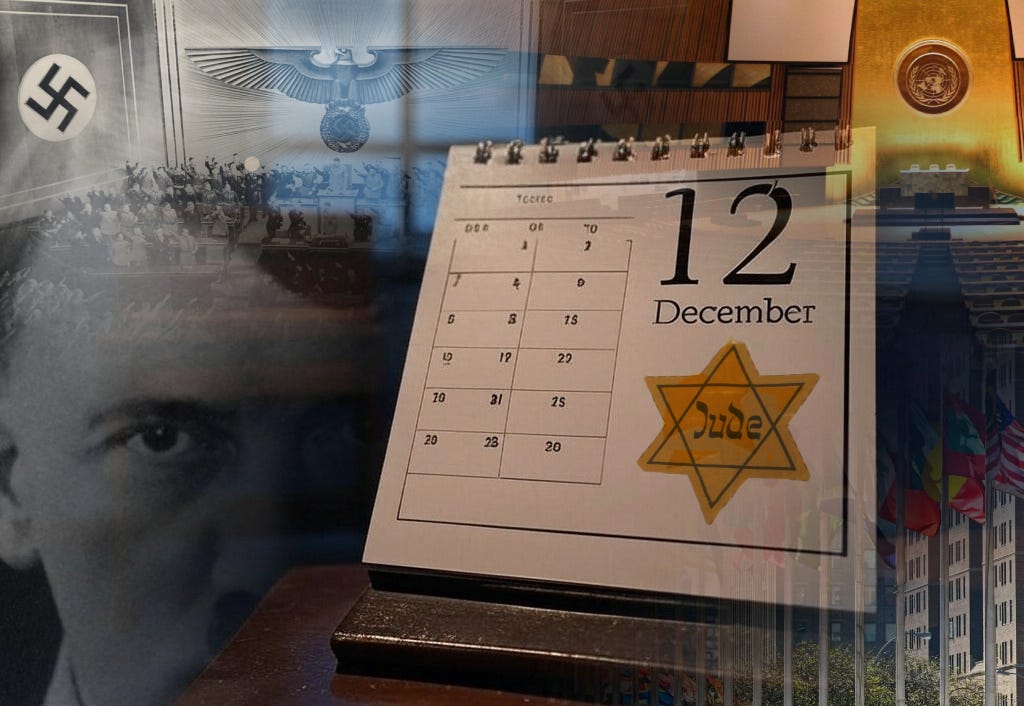
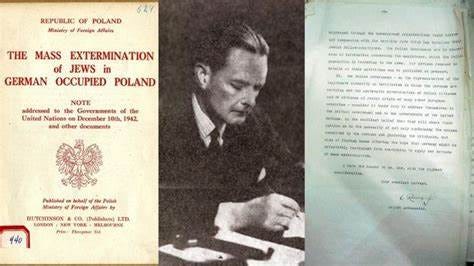
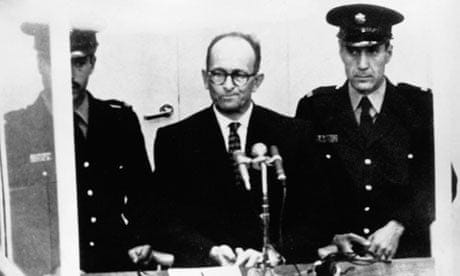
![Resolution adopted by the Security Council at its 868th meeting on 23 June 1960 [on questions relating to the case of Adolf Eichmann] Resolution adopted by the Security Council at its 868th meeting on 23 June 1960 [on questions relating to the case of Adolf Eichmann]](https://substackcdn.com/image/fetch/w_1456,c_limit,f_auto,q_auto:good,fl_progressive:steep/https%3A%2F%2Fsubstack-post-media.s3.amazonaws.com%2Fpublic%2Fimages%2Fbbe0c55e-673e-4b7d-a2d0-7331658e6bf5_209x273.jpeg)